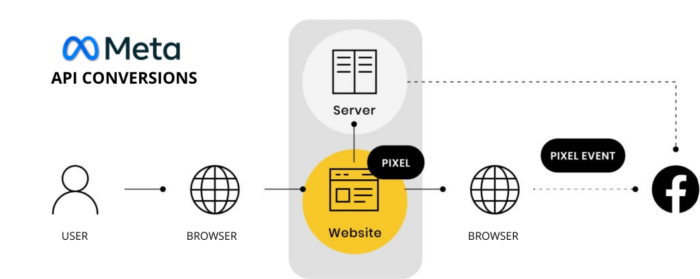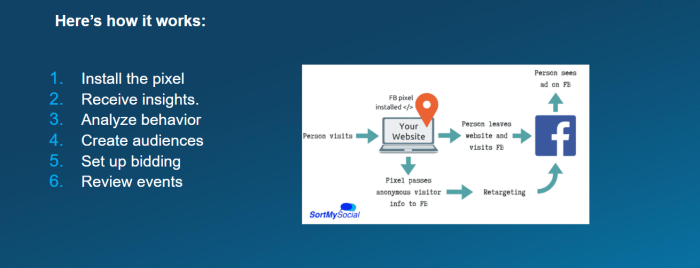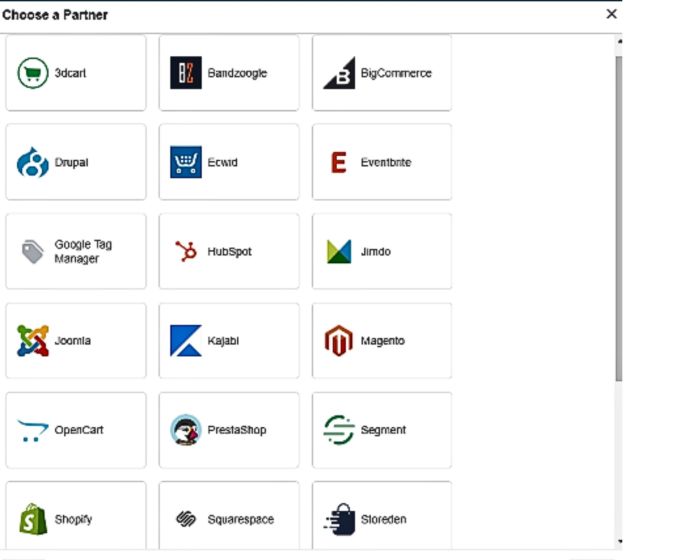The digital advertising landscape is evolving rapidly. Due to mounting concerns about internet security and user privacy, data collection presents a significant challenge for educational marketers, decreasing the reliability of tools like Cookies. Quality data is a crucial part of educational marketing as it facilitates targeting based on metrics like demographics, personal interests, and online habits. A data-driven marketing strategy for your school means a better understanding of market trends, how to improve the student experience, potential for personalization, and a competitive edge. With this in mind, how can you ensure that you can continue to access the data you need to reach marketing objectives for your school?
Today, we’re exploring using Meta’s Conversions API, a solution tailor-made for overcoming the reliance on cookies for advertising on Meta (formerly known as Facebook). For educational institutions, the implications are vast, offering a gateway to more reliable data and enhanced targeting capabilities without infringing on user privacy—Discover Meta’s Conversions API tool and what it can mean for your educational marketing strategy.
A New Bridge for Data: The Conversions API
We asked our in-house digital marketing specialist, Nichollas Saucedo to provide a working definition of Meta’s Conversions API. He explained: “The conversion API is a bridge that connects advertiser’s marketing data from a server or a website platform to Meta systems. This allows [schools] to send [student] interaction data directly to Meta and streamline the communication process.”
How does a conversions API work? Nichollas elaborates: “Previously, the Pixel used cookies to identify the users and their events, but the conversions API communicates with the server directly. So the website will collect various customer interactions such as filling out a form, link clicks, purchases, logins, etc, and send them directly to Facebook. This helps us deal with discrepancies and data gaps that can happen due to ad blockers and other privacy softwares.”
For example, One of the formidable challenges educational institutions face is accurately tracking online events such as form submissions or brochure downloads. The Meta Conversions API steps in as a robust solution. Here’s a visual representation of how it works:

Source: Starsystem
Curious about how your school can utilize tools like Meta’s Conversions API? Feel free to reach out for our expert digital marketing services.
Moving Beyond Pixels: The Benefits of Server-Side Communication
Web pixels assign cookies to users’ browsers, monitoring their website actions. The Conversions API takes a different approach, communicating directly with servers to gather and convey customer interactions. Specific educational marketing benefits include:
- Server-Side Tracking: Unlike traditional pixel-based tracking, which relies on client-side cookies, the Conversions API allows for server-side event tracking. This helps capture conversion data more accurately, especially when browser restrictions or ad blockers might interfere with pixel tracking.
- Improved Data Privacy: By processing data on the server side, the Conversions API can help schools comply with data privacy regulations such as GDPR and CCPA, as it reduces the amount of personal data transmitted through browsers.
- Enhanced Conversion Matching: The API allows for sending additional customer data (such as email, phone number, and address) in a hashed format. This improves matching conversions to users on Meta platforms, leading to more accurate attribution and measurement.
- Custom Events and Parameters: Marketers can define custom events and parameters specific to their business needs, allowing for more granular tracking and analysis of user actions.
- Reduced Reliance on Cookies: As browsers increasingly restrict third-party cookies, the Conversions API provides a more reliable way to track conversions and user interactions without relying on cookies.
- Integration with Other Systems: The API can be integrated with CRM systems, e-commerce platforms, and other backend systems, enabling a seamless flow of conversion data between these systems and Meta’s advertising platform.
- Real-Time Data Processing: The API supports real-time data processing, allowing marketers to respond quickly to changes in user behavior and optimize their campaigns accordingly.
Meta’s Conversions API is engineered to integrate with their ecosystem seamlessly, sporting advanced matching capabilities and utilizing machine learning to refine ad targeting and budget efficiency. This translates into more precise advertising efforts, efficient resource allocation, and a more substantial return on investment for schools.
Setting Up for Success
Deploying the Meta Conversions API can vary in complexity based on the website platform. Some may require the expertise of developers or the integration of plugins to ensure the accurate transmission of data. Nonetheless, the initial setup is a worthwhile investment for your student recruitment strategy, as evidenced by success stories of institutions tracking users more effectively and eliminating critical data gaps. Here’s a brief step-by-step guide to effectively setting up Meta’s Conversions API:
1. Start By Preparing Your Environment
- Verify Your Domain: Ensure your school’s domain is verified in your Meta Business Manager account.
- Set Up a Facebook Pixel: If you haven’t already, create a Facebook Pixel in your Meta Business Manager account. Here’s how you can set up Meta Pixel (formerly known as Facebook Pixel)

Source: HEM
2. Choose The Integration Method That Aligns With Your Goals
Decide how you want to integrate the Conversions API. You can use:
- Server-side integration: Directly integrate with your server or backend system.
- Partner integration: Use a partner platform like Shopify, WooCommerce, or Google Tag Manager. Here are some helpful partners:

Source: HEM
3. Generate Access Token
- Go to your Facebook Pixel settings in the Events Manager.
- Click “Settings” and scroll to the “Conversions API” section.
- Generate an access token. This token will be used for authentication when sending events to the API.
4. Set Up Event Data
- Determine which events you want to track (e.g., purchases, form submissions, page views).
- Map out the data parameters for each event. These should align with the standard event parameters used by Meta.
5. Implement Server-Side Code
- If using server-side integration, write the code to send event data from your server to Meta’s Conversion API endpoint. This typically involves making HTTP POST requests with your event data and access token.
- For partner integrations, follow the platform-specific instructions to enable the Conversions API.
6. Test Your Implementation
- Use the “Test Events” tool in the Events Manager to verify that your events are being received correctly.
- Check for any errors or warnings and make necessary adjustments.
7. Monitor and Optimize
- Regularly monitor the performance of your events in the Events Manager.
- Use the data to optimize your ad campaigns and improve your conversion tracking.
In an era of heightened privacy concerns, Meta’s Conversions API is a pivotal tool for educational institutions. By embracing this technology, schools are not just adapting to change but positioning themselves at the forefront of digital advertising innovation.
In conclusion, the Meta Conversions API presents a significant opportunity for educational institutions to uphold data privacy, enhance ad targeting, and streamline marketing efforts. By embracing this server-side approach, educational marketers can navigate the complexities of data privacy and elevate the efficiency of their advertising strategies, ultimately contributing to their institutions’ sustained growth and success. Regarding his work with some of our own clients, Nichollas reveals: “Facebook conversions API has been really helping us properly track the users that go into our funnel and eliminate the data gap that we’ve been struggling with for a while.” Want to see how you can benefit from similar benefits? Reach out with your questions and prepare for excellent results.







